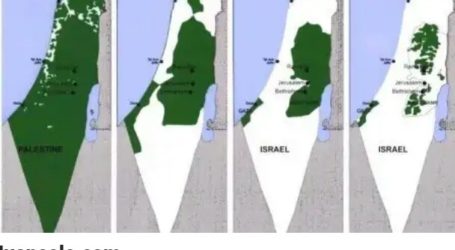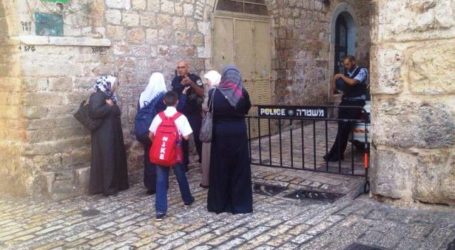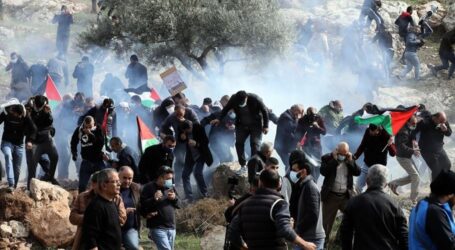PALESTINIAN PRISONERS OF THE LOST YOUTH
 West Bank, 10 Shawwal 1434 /16 August 2013 (MINA) – Most of the 26 Palestinians freed by Israel on night Tuesday, spent two decades of his life in prison and now have lost her youth.
West Bank, 10 Shawwal 1434 /16 August 2013 (MINA) – Most of the 26 Palestinians freed by Israel on night Tuesday, spent two decades of his life in prison and now have lost her youth.
Eleven of the men went back to their homes in the occupied West Bank, while the other 15 returned to the Gaza Strip. Altered families and a challenging new landscape, Saudi Gazette quoted by Mi’raj News Agency (MINA) as reporting, Friday.
One of the freed Palestinian prisoners, Mustafa Al-Haj has missed the milestones of a generation. He returning home 24 years after stabbing to death an Israeli settler in the rocky hills above his village.
“I feel like I’m in a new world,” Al-Haj told news agency source of Saudi Gazette.
“The house I grew up in has changed. I was the youngest brother, but now they have sons that are taller than me, praise God. The neighborhood has changed, a whole new generation was born and another one died. It’s strange,” he said.
Viewed in Israel as terrorists, the prisoners got a hero’s welcome in the West Bank from the Palestinian government — which did not exist when most were first jailed — and from relatives, many of whom could not see them during their incarceration.
“It hurt us that I got married and had children and he was away. We’ll have to get him married, get him a job,” Al-Haj’s brother Fareh said at the family home.
Money will not be an immediate concern. The Palestinian Authority pays freed, long-serving prisoners an average 4,000 ($1,120) shekels a month, regarding them as returning soldiers.
Such benefits anger ordinary Israelis and even ministers in Prime Minister Benjamin Netanyahu’s cabinet question whether any other states would sanction mass releases of convicted killers.
Al-Haj was found guilty over the 1989 killing of Steven Rosenfeld, 48, who had moved to the West Bank settlement of Ariel from the United States. The Israeli army subsequently blew up his home as punishment and to try to dissuade other Palestinians from violence.
The house has long since been rebuilt and was draped in lights to greet Al-Haj. Other new sights also awaited, including nearby Jewish settlements that were once just a few caravans are now towns sprawling over the horizon.
When Al-Haj was arrested, the West Bank settler population was 69,800. Israel’s Army Radio says the number is now 367,000. Despite this, his family believes that he and fellow Palestinian militants did force concessions from Israel.
Bowing to US pressure, both the Israelis and Palestinians resumed talks following a three-year hiatus — the prisoner release helping to convince Palestinian President Mahmoud Abbas to return to the negotiations.
“We do not support negotiation,” said Samir Murtaja, a senior member of the Hamas group in Gaza, who was freed after being jailed in 1993 on charges of killing four Palestinians suspected of spying for Israel.
He was arrested just two months after getting married and his relatives greeted him in the coastal enclave with a wedding-style celebration — a car bedecked with flowers whisking him around his neighborhood amid raucous honking and music. (T/P09/P03)
Mi’raj News Agency (MINA)






